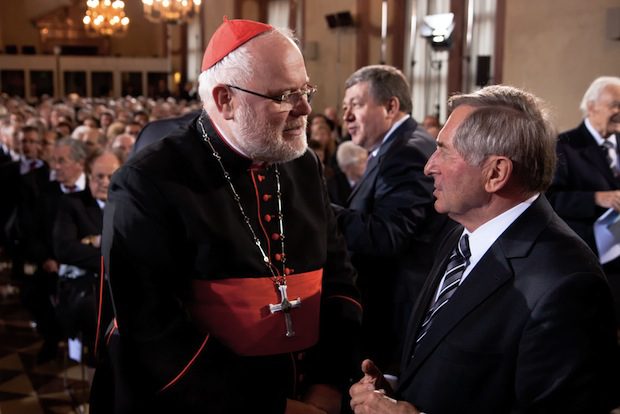The Shadow Council Speaks

You might recall earlier this year I posted reports about a closed-door meeting between select French, German, and Swiss Roman Catholic bishops, all progressives who met to discuss their plans to push at the fall Synod on the Family for liberalization of Catholic teaching. Now most of the proceedings have been published in French, German, and Italian; Andrea Gagliarducci reports on it in English for the Catholic News Agency. Excerpts:
Yes to contraception, homosexual acts, and Communion for the divorced and remarried – all considering the circumstances. No to understanding any acts as intrinsically evil.
These are the positions advocated by speakers at the May 25 “shadow council” which gathered prelates and theologians, led by the German bishops, at a Jesuit university in Rome.
A Jesuit theologian’s speech went like this, the report says:
He maintained that “the interpretation of the doctrine of acts known as ‘intrinsically evil’ is seemingly one of the principal fonts of the difficulty currently encountered in the pastoral care of families, as it determines to a large extent the condemnation of artificial contraception, of sexual acts by the divorced and remarried and by homosexual couples, even when they are stable.”
This understanding of some acts as intrinsically evil, he said, “seems incomprehensible to many and seems pastorally counterproductive.” He added that while it “justly insists on points of reference as the targets of the moral life, it neglects precisely the biographical dimension of existence and the specific conditions of each personal journey.”
He claimed a “narrative and biographical perspective obliges one to believe that moral evaluation does not cover isolated acts, but rather human acts included in a story,” and that thus “one should not be too quick to qualify a sexual or contraceptive act as intrinsically evil!”
Fr. Thomasset relied on a particular understanding of the primacy of conscience, saying that “the objective ethical references provided by the Church are just one item (essential, certainly, but not the only item) of moral discernment that must be operated within the personal conscience.”
“How are we to take into account the difference between an act of adultery and sexual relations within a stable couple of remarried persons?” he asked.
He commented that “it would be of great benefit to the elaboration of moral norms and of pastoral measures if there was a increased listening to the experience and the sensus fidei of couples who are seeking to best live out their call to holiness,” adding that “divine communication and its reception on the part of the individual believer are co-originating.”
Read the entire report. This Synod is going to be quite the showdown, innit?